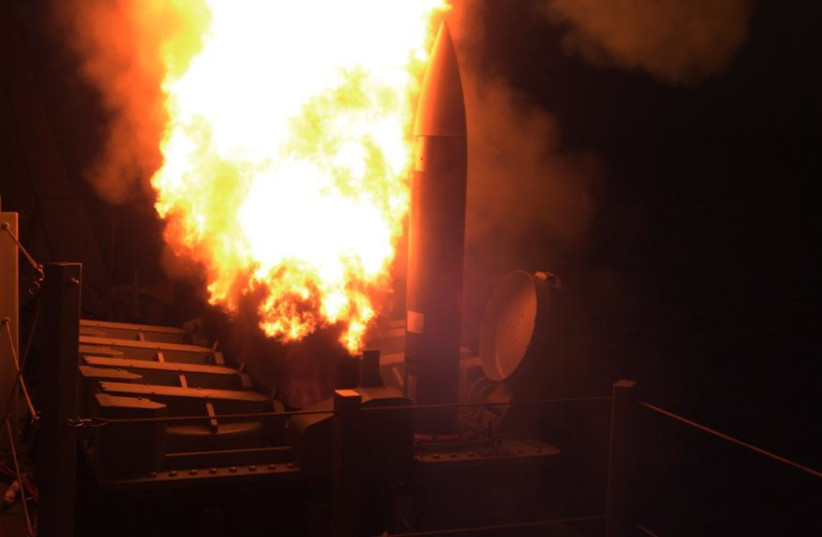A long-range interceptor (LRAD) launched from an Israeli naval vessel for the first time successfully detected and intercepted a target that resembled an advanced cruise missile, the IDF and Defense Ministry announced on Wednesday morning.
The successful operation of the LRAD, launched with a Barak Magen air defense system from a Sa'ar 6-class corvette, represents a major milestone for a system that according to the Israeli defense services would constitute a central pillar to defending assets in Israeli economic waters.
"The demonstration of the capability and the success of the trial of the Barak Magen system is a significant milestone in the process of carrying out the defense ships, and is a significant addition to the basket of capabilities of the naval arm in realizing the defense of the strategic maritime sites belonging to the State of Israel," said naval equipment division head Lt. Col. Ariel Shir. "The Barak Magen system in general, and the LRAD interceptors in particular, allow the defense ships improved detection and interception capabilities, at significantly greater ranges and against the range of air threats.
The interceptor system reportedly would be able to address multiple types of aerial threats, including aircraft, unmanned aerial vehicles (UAVs), cruise missiles, ballistic missiles and coast-to-sea and anti-ship missiles.
"The success of this experiment is a technological breakthrough in the field of naval defense systems against missiles," said IAI CEO Boaz Levy. "The operational capability of the Barak Magen system is a force multiplier for the Sa'ar 6 ships and the naval arm. The system successfully discovered the target simulating a cruise missile in an operational outline and launched the 'LRAD' interceptor from the sea towards it, which destroyed it."
In June, the IDF shot down three UAVs launched by Hezbollah toward Israel’s economic waters. One of the drones was shot down by an IAF F-16, and the other two were destroyed by the INS Eilat using a naval Barak 8 medium-range surface-to-air missile system.
The incident marked the first instance that the Barak 8 platform was used in combat.
Prior to the signing of the Israel-Lebanon maritime agreement, Hezbollah's Hassan Nasrallah made multiple threats against the Karish gas platform.
In addition to drones, Hezbollah has been shown to possess anti-ship missiles and tens of thousands of ballistic missiles. Iran, which supplies Hezbollah with armaments, has produced a variety of suicide drones that have gained prominence in theatres of combat worldwide, including the Russia-Ukraine War.
